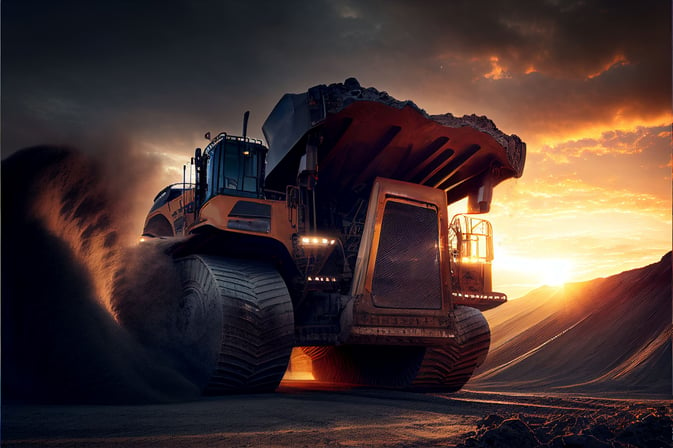Stop Overpaying for Rental Equipment and Drive Cost Savings

No matter what type of business you’re in, odds are your team spends lots of time negotiating contracts to get the best rates and keep spending within budget. But are you sure the negotiated rates are what you’re paying?
Your business likely pays hundreds of thousands and even millions for rental equipment. How often is the monthly invoice paid despite the accounting team being unsure what they’re paying for? Those paying the invoice may not know if accurate rates are being applied, or even the rental contractual terms and conditions.
It’s probably no secret that overcharging for rental equipment in the heavy asset industry is a significant problem that arises from several factors. Let’s take a closer look at those factors.
For starters, the rental equipment industry is huge. The global oil and gas equipment rental market alone accounted for $20.66 billion in 2022 and is forecasted to reach a valuation of $25.96 billion by 2028.
Out of Contract Markups Prove Costly
Do you have hundreds of pieces of equipment—from earthmoving backhoes to lifts like forklifts and cranes—at your facility? Ensuring each piece of equipment is billed at the agreed-upon rate is a tedious and time-consuming process. But is it even necessary? After all, it’s reasonable to assume that the rental supplier is providing the equipment at the agreed-on price.
Not necessarily.
If you (the site owner) request equipment from your rental supplier but they don’t have that piece of equipment, they will source it from another supplier. Fair enough.
However, when your rental supplier needs to source the equipment from another supplier, they add a markup to compensate for their inconvenience and the extra fee they pay a competitor for the equipment. A markup is out of contract and could be significant. The rental supplier automatically includes the markup as part of the invoice, even though they are at fault for not fulfilling their end of the contract.
As the site owner, you need visibility to recognize out-of-contract fees, or you’ll get stuck paying them without realizing it. Without visibility into your payments, you can’t go back to the rental supplier and review any extra costs that go outside of the contract.
Billing Rates for Equipment Gets Complicated
Contracts are complex in multiple ways, such as in how equipment is billed. Consider this example for a piece of equipment like a dump truck.
The first 12 hours of usage are billed at an hourly rate. At that point, the fee reaches a daily maximum rate unless over-hours are charged at a reduced rate. Then, the daily rate is adjusted to a weekly rate halfway through the week. But don’t forget daily idle hours and over-hours, which are charged at reduced rates. The fee is adjusted to a monthly rate about two-thirds of the way through the month.
This complex fee structure is like an “if-then” math problem.
To further complicate the billing structure, there are down times. How does the time needed for fueling, mobilization, repair, and other downtime count toward billing rates?
Validating that the rental equipment is charged according to the agreed-on structure is a major challenge for you and the rental agency. Getting it right starts with developing a detailed contract. Yet, that’s only the beginning. A thorough review of the contract and invoice is essential.
Equipment Quality Can Impact Safety and More!
Now, let’s consider the quality of equipment and the issues that may arise. Let’s say your team determines a type of equipment is needed at a location. You work out the details with the rental equipment company for the exact amount and type of equipment you want.
Then the equipment arrives on site, and its quality is not up to snuff. Perhaps it’s an earlier model or it has been poorly maintained. In both scenarios, the equipment will likely negatively impact the quality of work done and/or the time it takes to complete the job.
If the rental contract needs to be extended, fees will go up. The rental equipment company will also charge the same fee despite the lower-quality equipment. Even greater costs could stem from the need to delay other activities at the location.
Equipment quality also impacts safety. Poor-quality equipment could also increase the risk of danger to employees using the equipment. Future employees working at a site where substandard work was performed are also subjected to greater potential for accidents. 
Don’t Forget Fuel, Maintenance, and Repairs
Little things add up to big things, particularly regarding the volume of rental equipment used at your facility.
One of the little things related to rental equipment is fuel. What does your rental agreement stipulate regarding fuel? Some rental agreements include a clause that allows the rental company to charge above the actual rate for fuel. Or perhaps the rental company adds a surcharge for every gallon/liter of fuel used. This minor fee adds up quickly when thousands of gallons are required for a job.
Do you need a particular fuel type or a specific supplier? Is there a fee if you go out of the market? Fuel expenses can make up 30% to 50% of heavy equipment operating costs. Various factors influence your machine's fuel efficiency, including:
- Operator technique and driving habits
- Idle times
- Equipment type and configuration for a given project
- Technologies
- Maintenance efforts
- Carrying loads
- Job site and workday setups
Then, there’s maintenance. Inevitably, there will be equipment breakdowns.
The rental equipment company may charge excessively for repairs and even bill for services that were not necessary. They also may continue to charge a fee while equipment is being repaired, even though the cause for the necessary maintenance may not be your negligence. Again, machines naturally break down over time.
While the repair is being done, you're down a piece of equipment, so work is slowed. The rental equipment company may provide a replacement. Are you charged for both the replacement and the equipment being repaired?
These little things will occur. The challenge is to ensure you're not overcharged for them. Again, this is challenging, considering there can be many pieces of equipment to monitor. 
How the Track Rental Equipment Module Can Help
Managing rental equipment is challenging. Contractual stipulations and the need to use a separate billing process make the process even more difficult. It can lead you to a lack of confidence in the calculation of the rate charged along with potential value leakage. That’s why Track has a Rental Equipment Module.
The module is designed to help track equipment from a third-party equipment supplier. It is typically used by both the owner company and the vendor. The Rental Equipment Module is designed to handle frequent and complex billing situations.
With the Rental Equipment Module, you can:
- Ensure accurate rates are applied to rental equipment based on rented time for initial or swapped-out equipment.
- Identify excessive spending on bulk items.
- Reduce the cost of third-party markups for rental equipment.
- Reduce master data entry time due to the purpose-built solution.
- Prevent billing for equipment that is not in use, thereby increasing visibility.
The Rental Equipment Module empowers you to track any type of equipment and services spend in one place. You can feel confident that the rental supplier is adhering to the terms and conditions of the contract. If there’s a discrepancy, it will be detected. So, you’ll pay the correct amount – and not more – for your rental equipment.
Business moves quickly these days. Making good business decisions promptly is easier when you have accurate data. Track’s Rental Equipment Module can help you make better business decisions regarding rental equipment and reduce the cost of markups or unfavorably negotiated third-party rental spending.
Say goodbye to being overcharged for rental equipment. Learn more about the Track Rental Equipment Module now.




